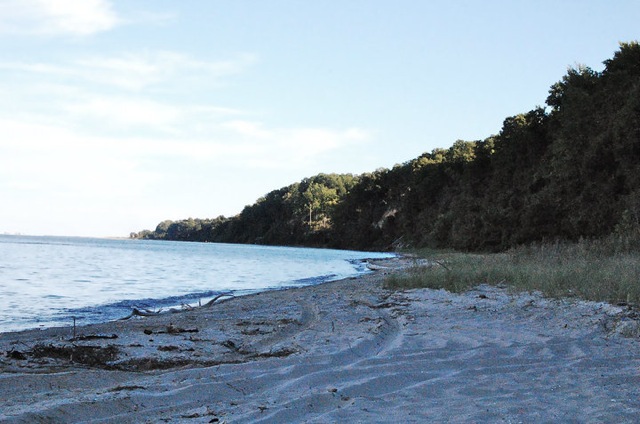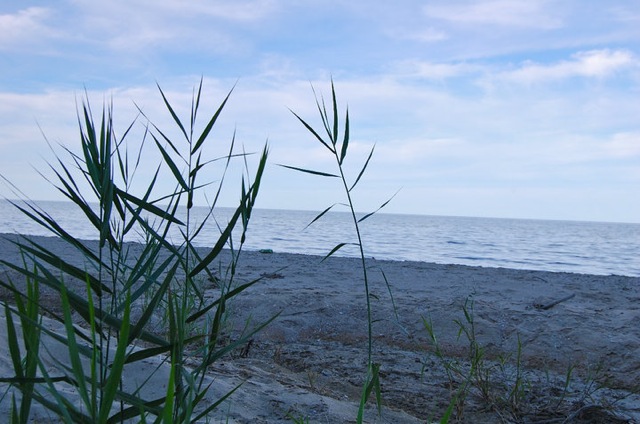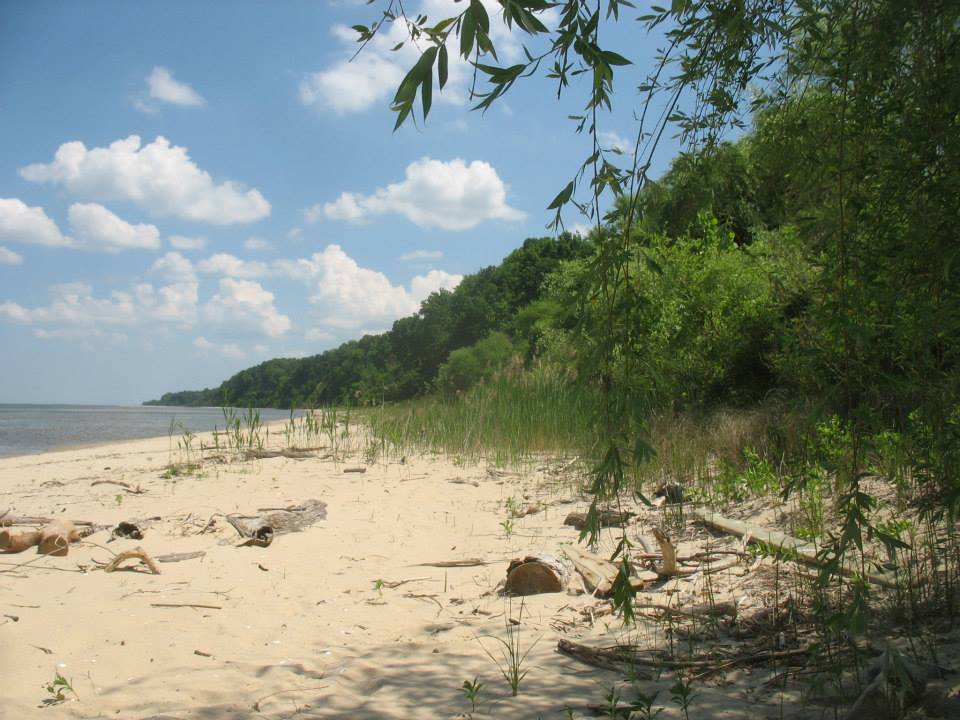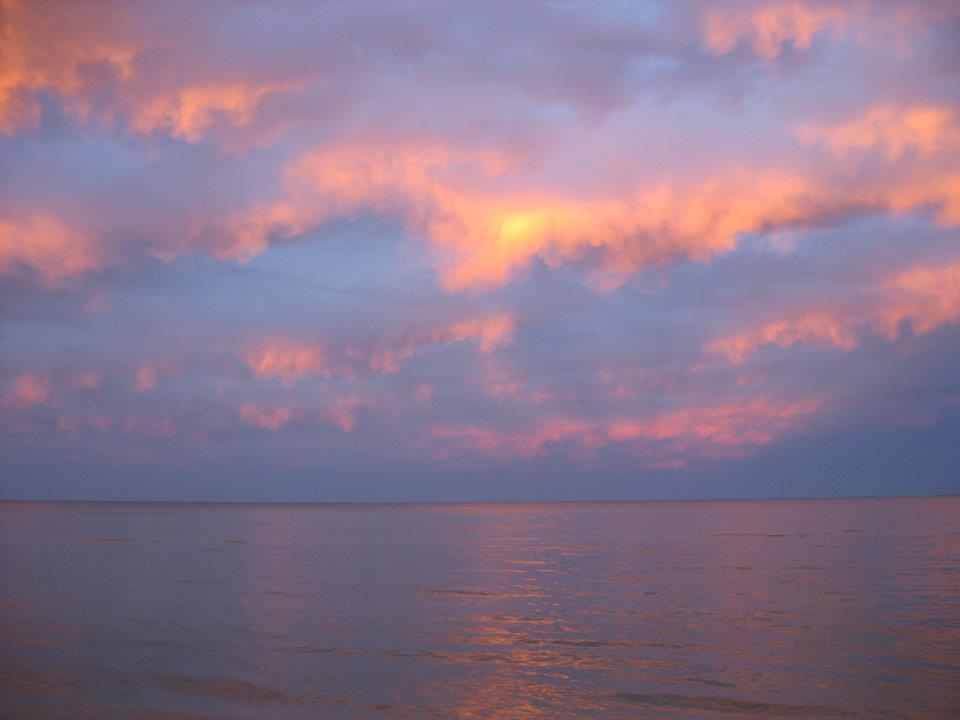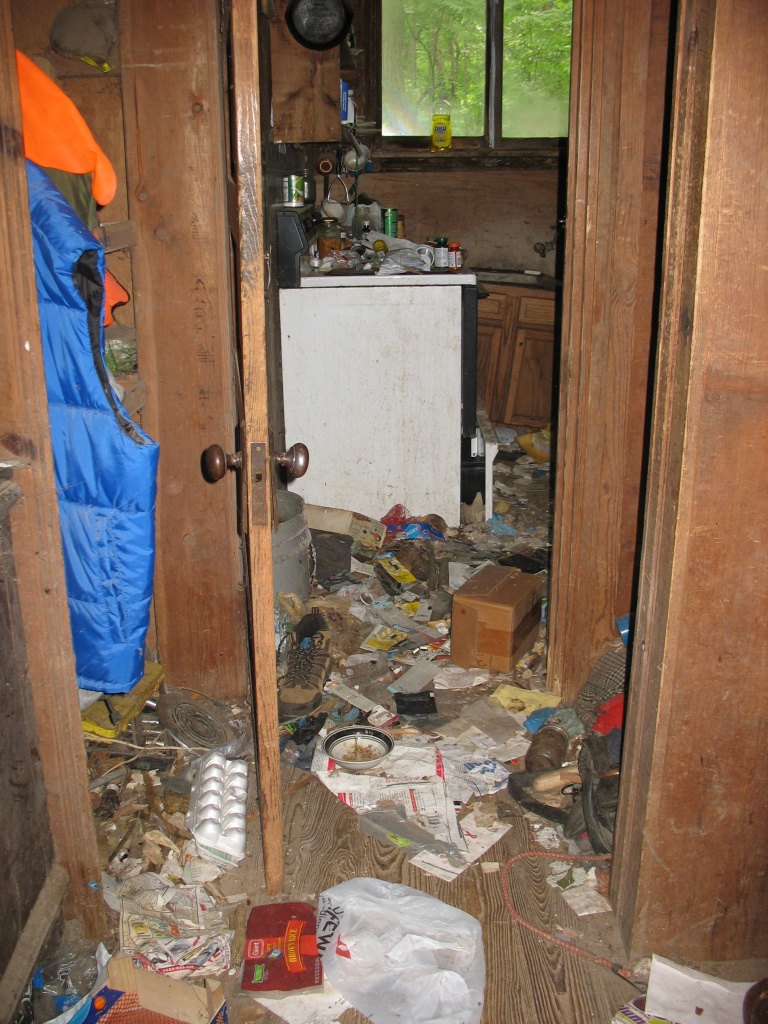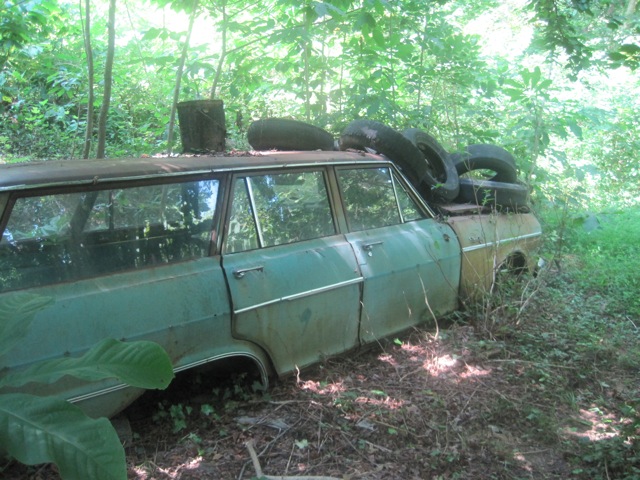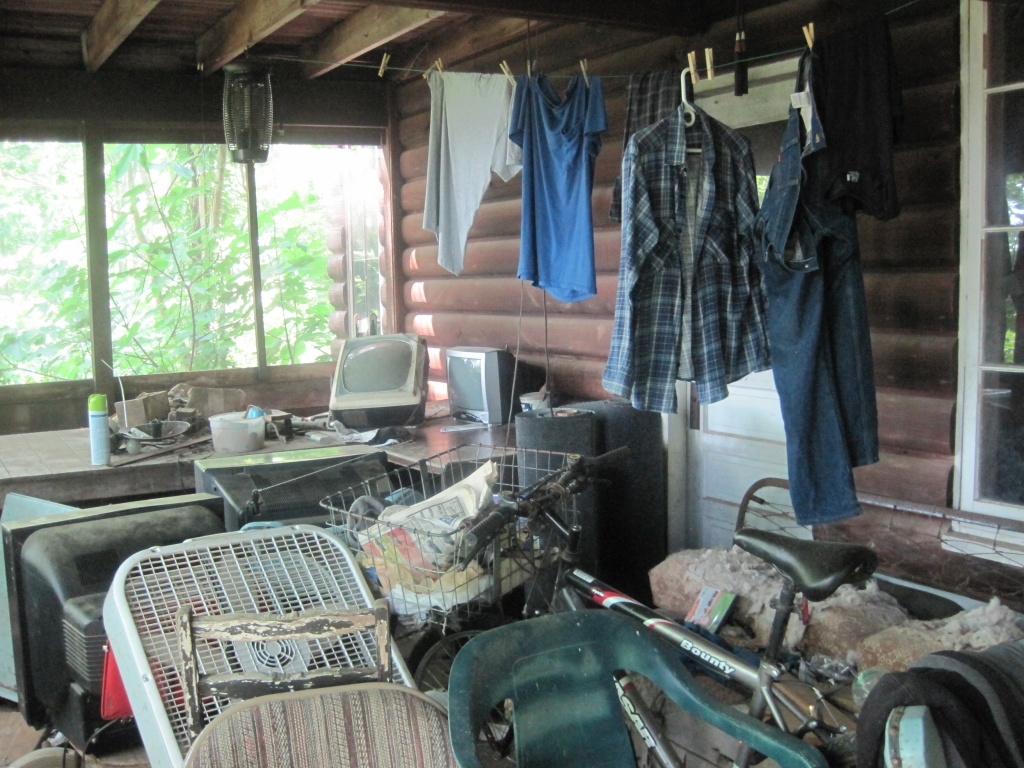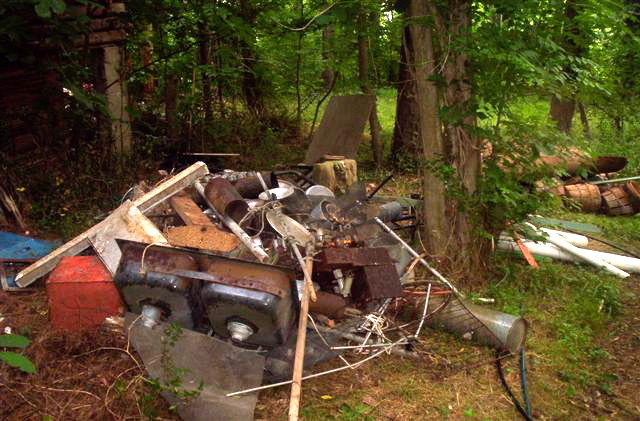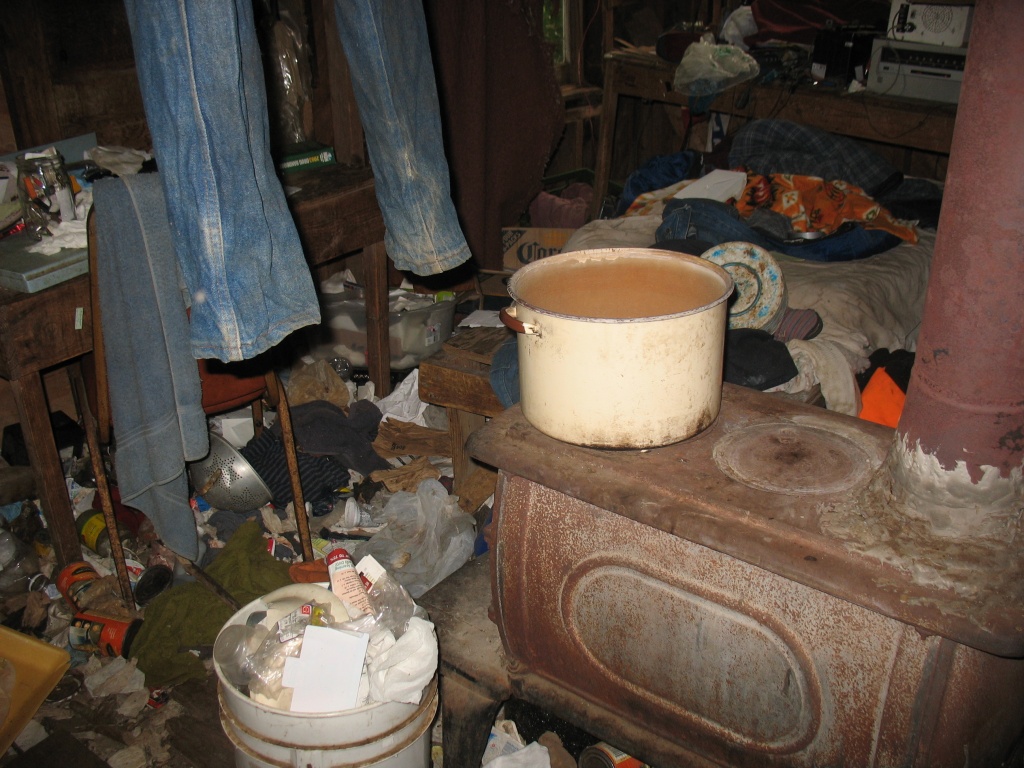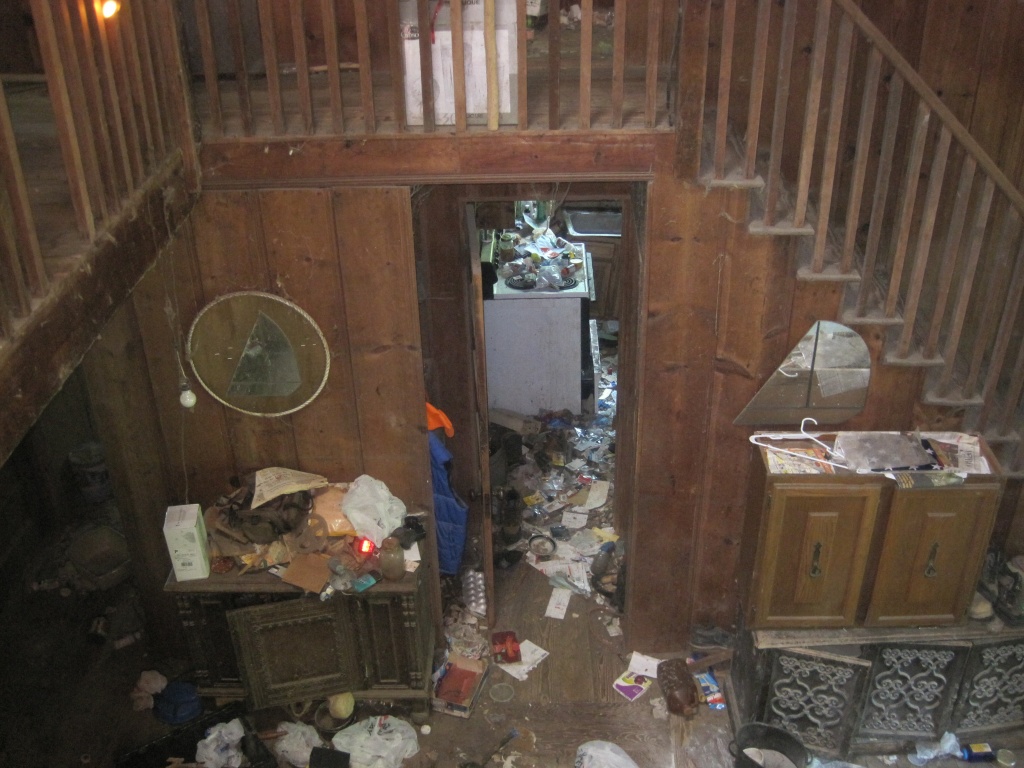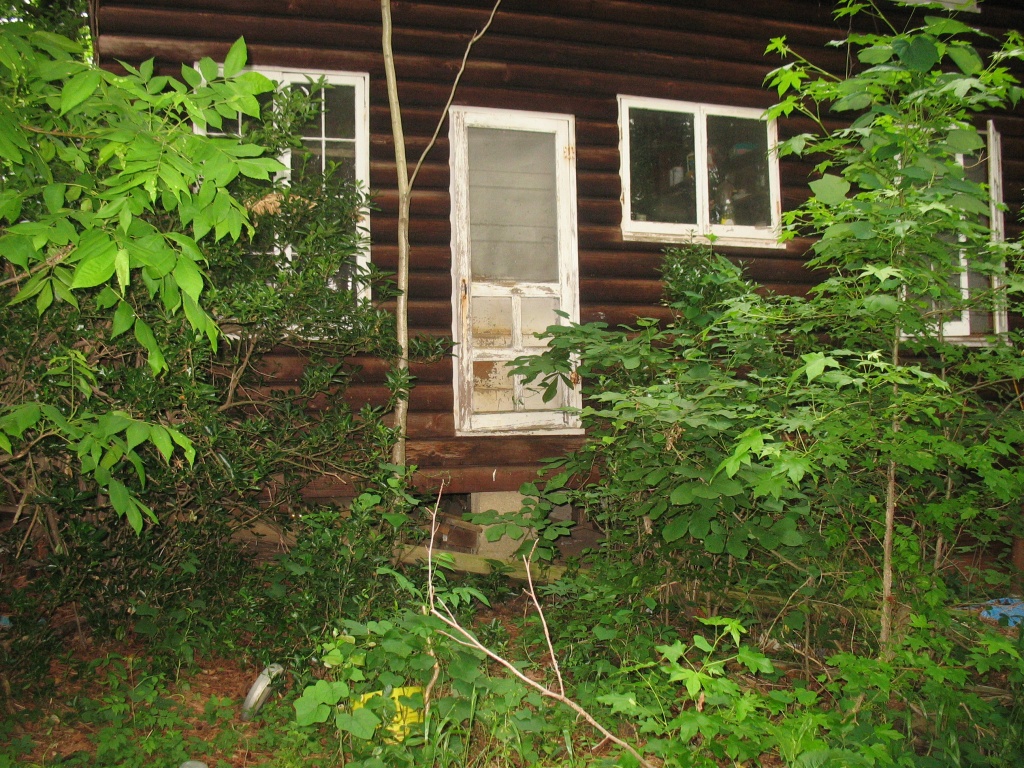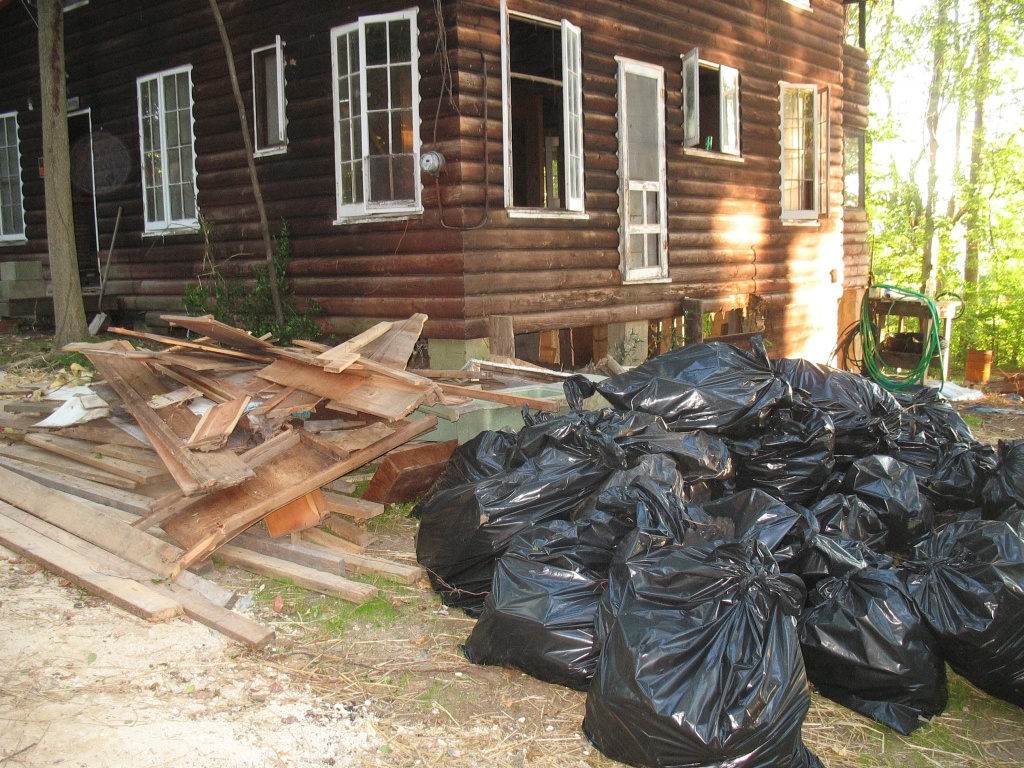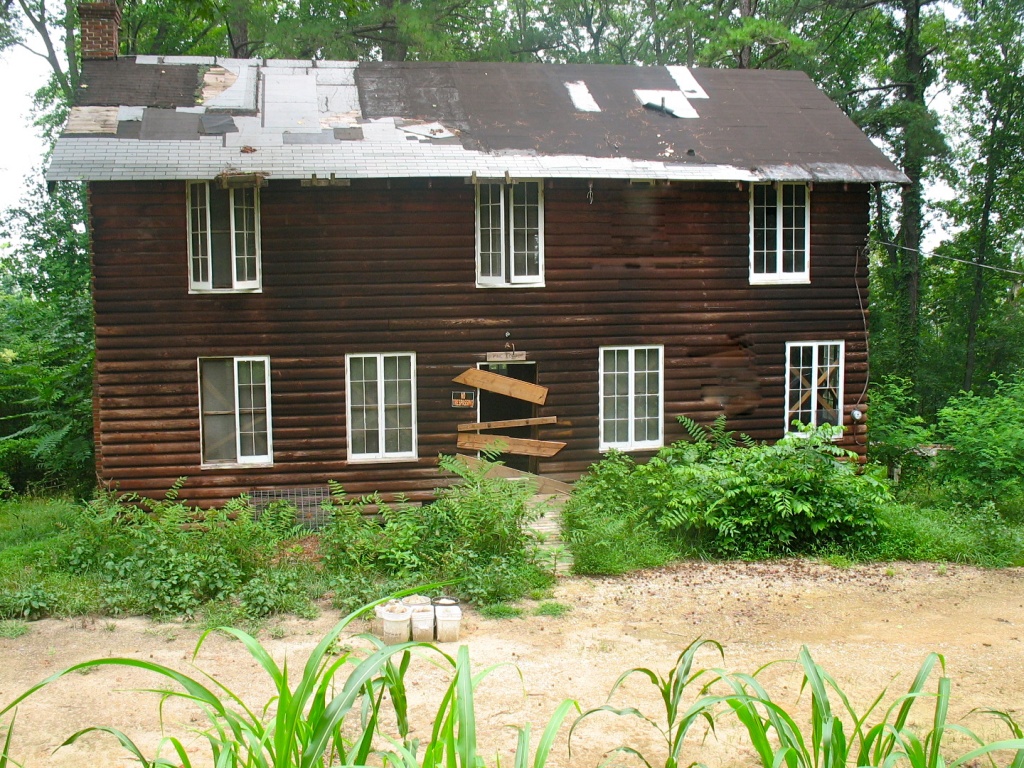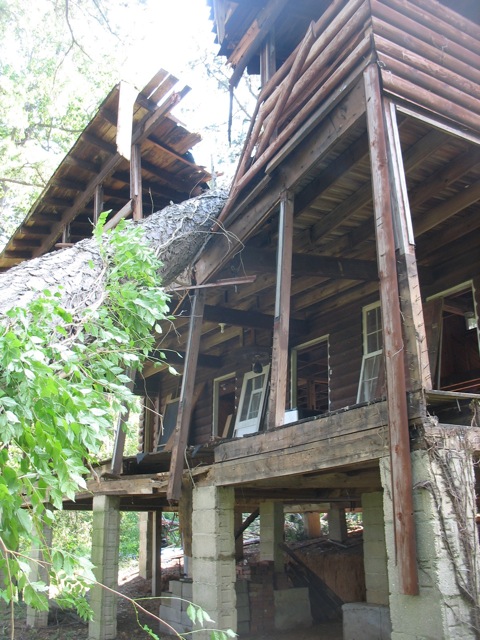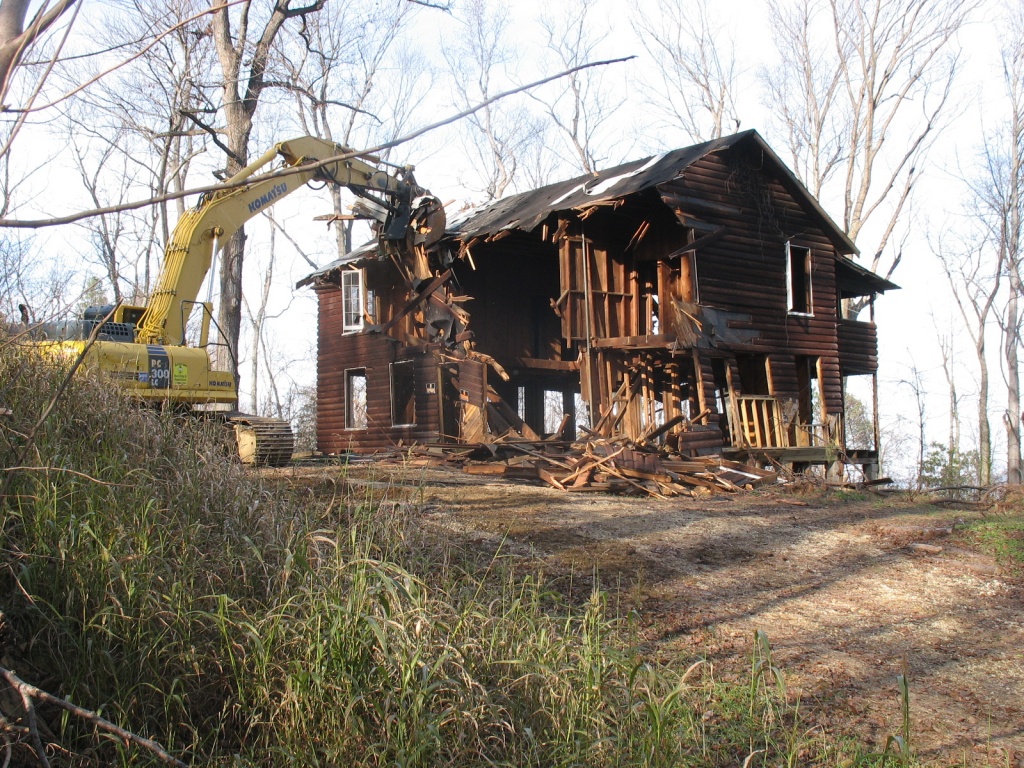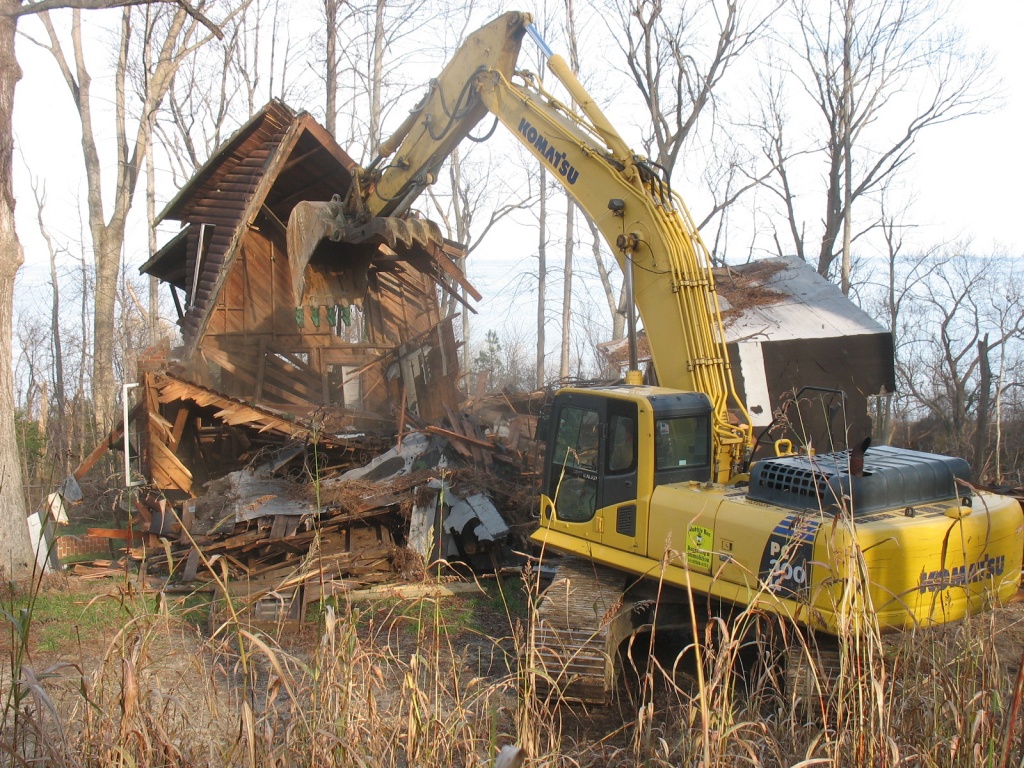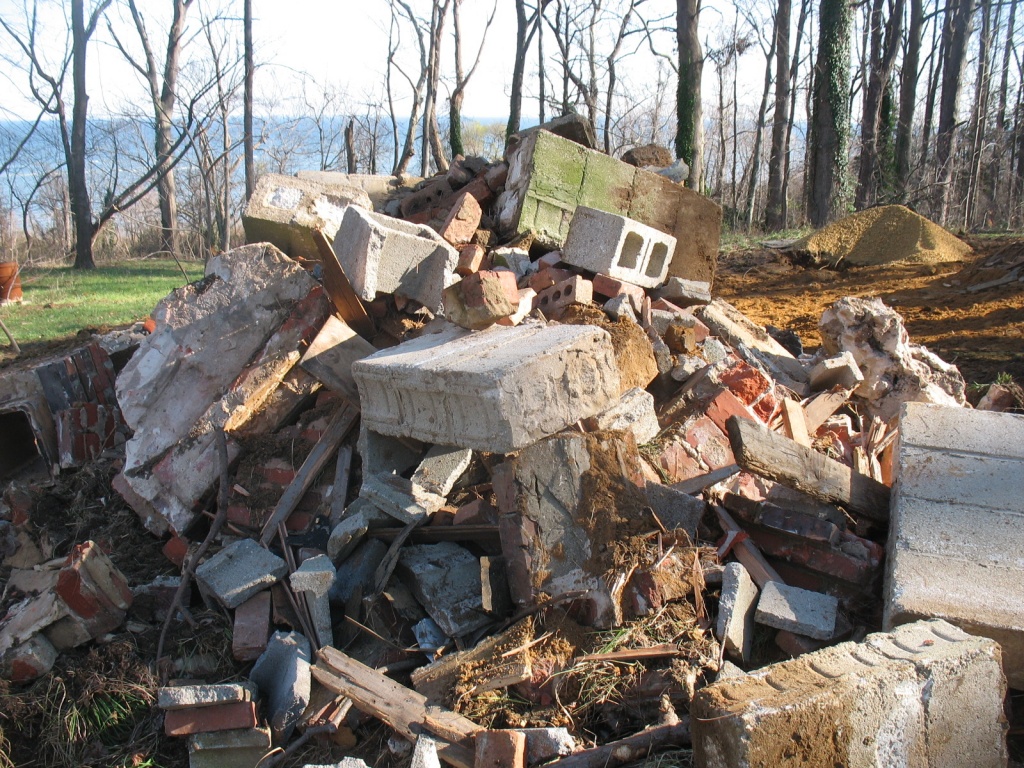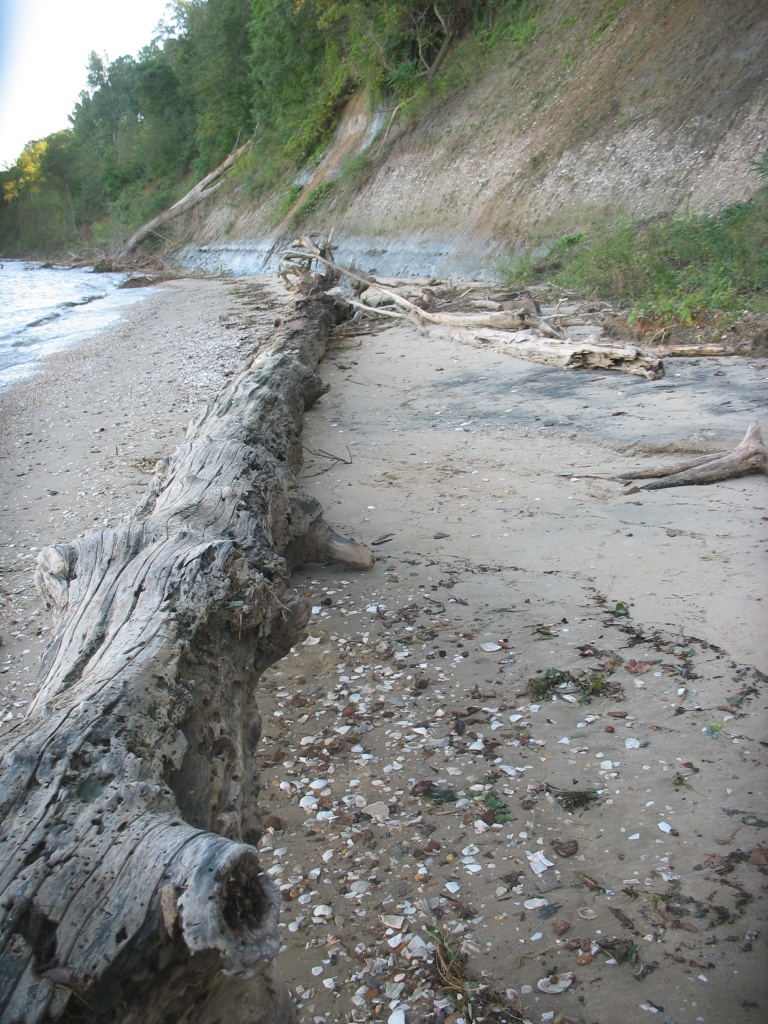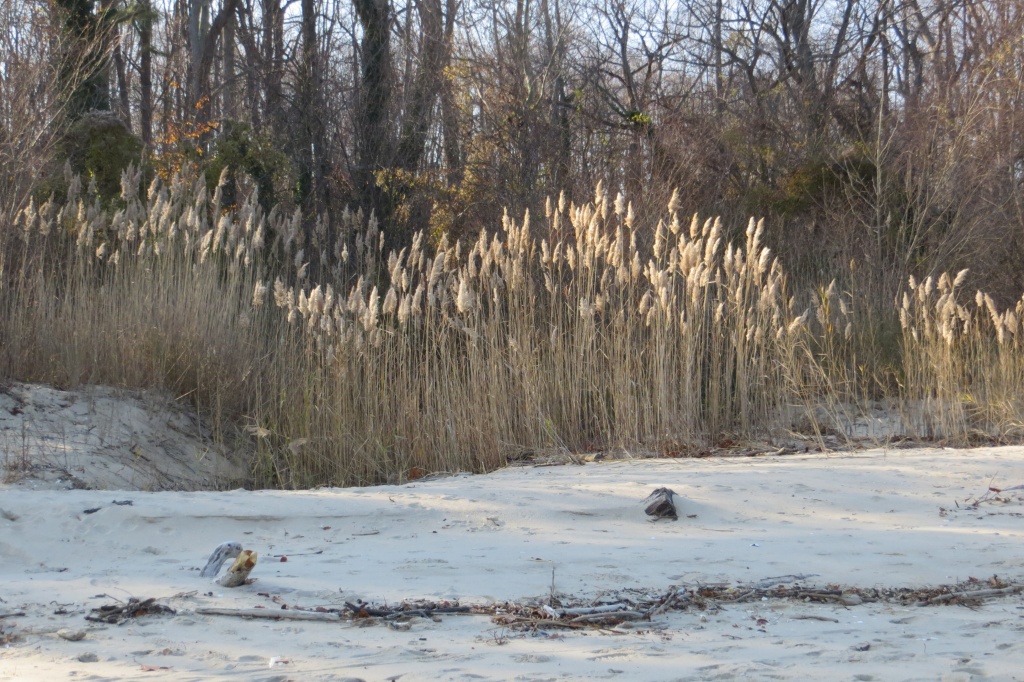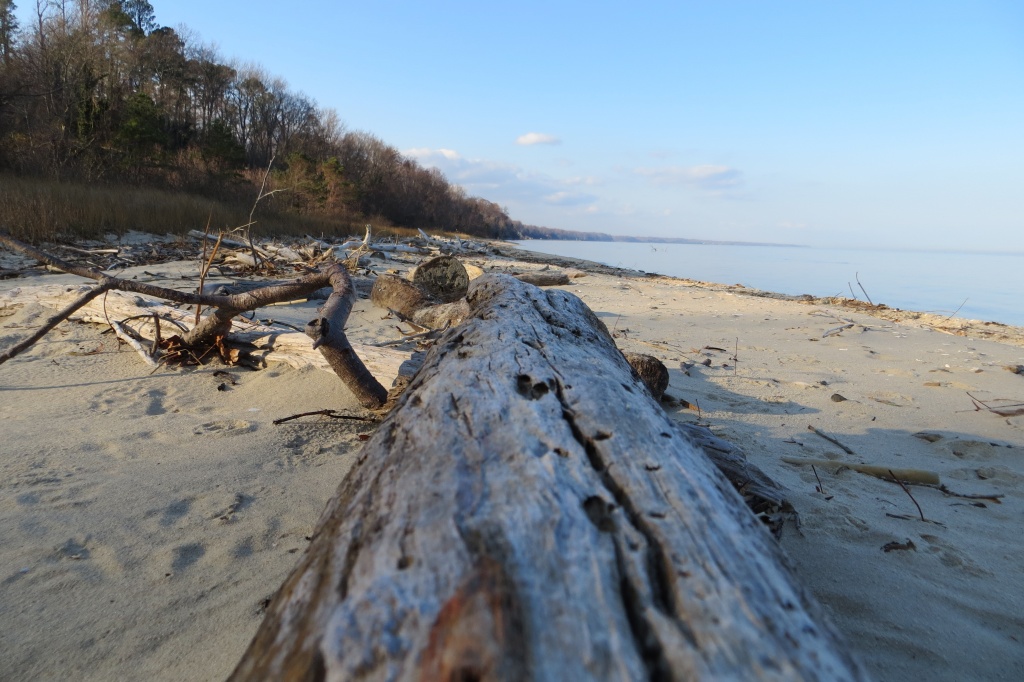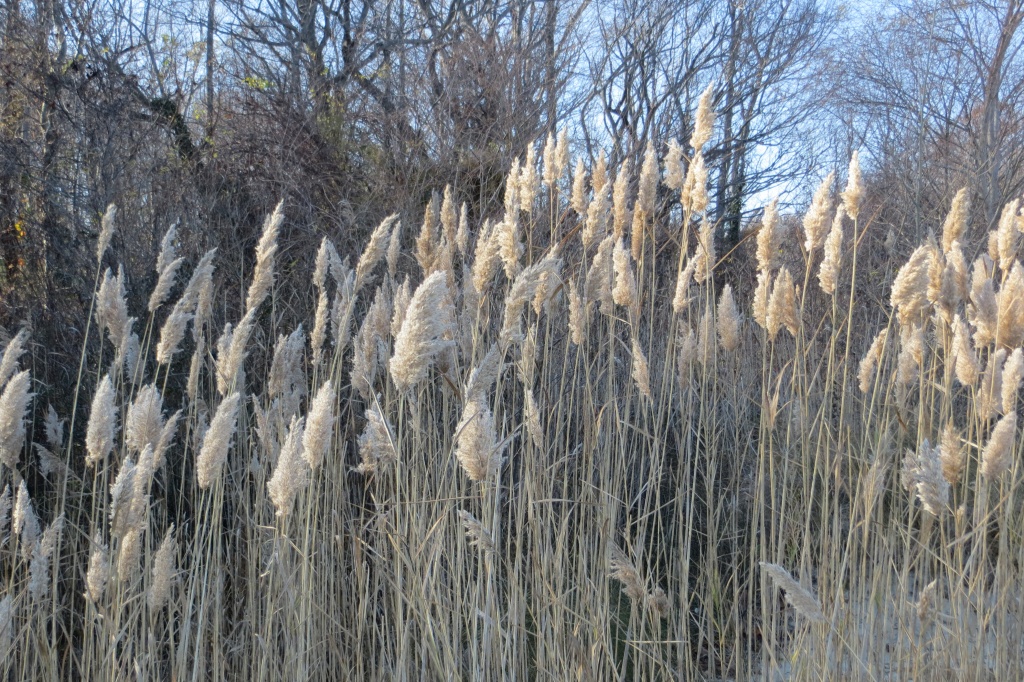Chesapeake Ebb and Flow
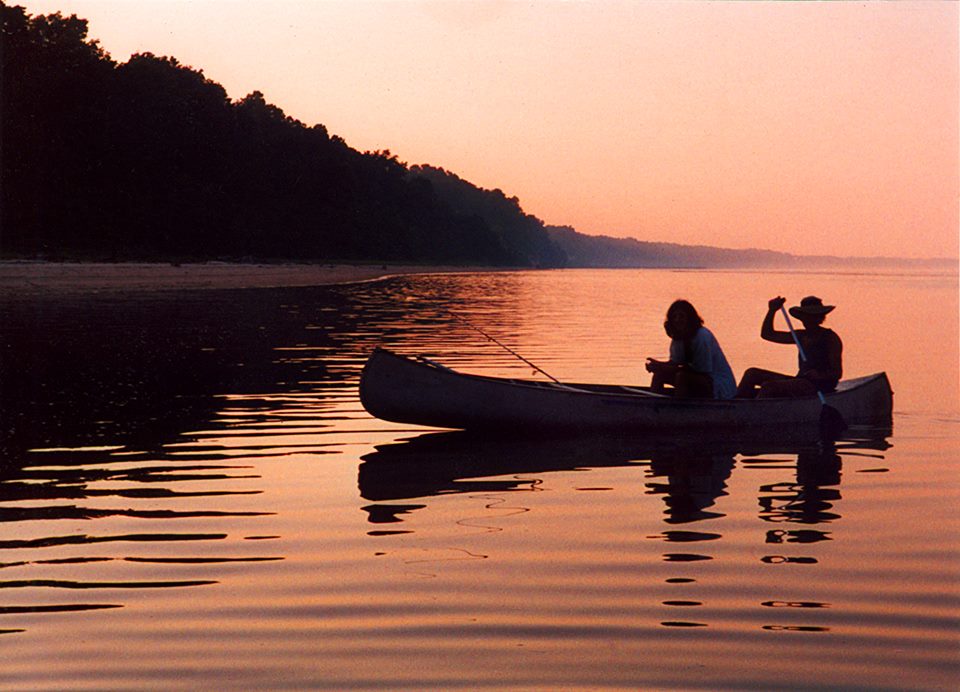
In the 1930s, my grandparents bought some land on the western shores of the Chesapeake Bay. Breathtaking and beautiful, the property captivated my grandmother who fell in love with the woods and streams, the Calvert Cliffs, and almost two thousand feet of pristine beachfront. My grandparents built a rustic, unfinished house there and the family photo albums show our family gathering there, decade after decade.
Shortly before my grandmother died in 1975, her only son–my uncle–began living in the house they had built on the bay. He quit his job, abandoned his car, disconnected the phone lines and began living alone in the woods–with all the modern conveniences of anyone in 1865. He mostly tended his garden and his fruit trees and got around by foot and bicycle, retreating not just from the daily grind and rat race, but also from most of the trappings and conveniences of modern life.
Our family always wondered if he was happy. In the summer, he’d write about all the work he had to do and in the winter, he’d write us long hand-written letters about how he needed to split more wood to stay warm. He never accepted our invitations to stay with us and he turned down my offers to come down and help him insulate his home against the winter cold; he said it would only raise his property taxes.
In the beginning, his adventure was exciting and unique and he fit right in with those of us who embraced the back-to-the-land movement; in the end, his letters sounded more eccentric.
He had never been good at cleaning his house and as time went on, the place filled up. At one point someone abandoned cats on his land, and Danny–good-hearted soul that he was–began feeding them; soon he had eighteen cats running all over the house.
He resisted my efforts–and those of his friends who lived nearby—to help him clean the place and with each year, both his house and his health deteriorated. After Danny died in 2010, I spent much of the winter and following spring cleaning the land by the bay. His friends came and helped us clean the house; then I began cleaning the woods of abandoned mowers and tools; and finally my wife and I began cleaning the shoreline, picking up the tires, styrofoam, cans, and bottles that had been washing up onto the beach for years.
I had done this before.
A decade earlier, we had bought a farm property and I had spent a couple years cleaning that land and restoring the buildings there. At the time, our friends thought I was crazy to undertake this, but my wife understood what was pulling me; “For twenty years you’ve wanted to clean the family land by the bay but your Uncle wouldn’t let you,” she said, “so you had to find your own junkyard to clean.”
In fact, I hadn’t just cleaned our own place; after I removed all the trash and tires from our property, I began cleaning the riverbanks and the watershed next door to our home; I bagged up bottles, cans, and Styrofoam that had washed into the coves and woods and hauled out tires that had been dumped all along the river.
A pattern was clearly emerging and I was beginning to wonder if I had been an industrial polluter in some past life, because once again, here I was cleaning up the woods and streams–as if I was solely responsible for repairing the world.
Before he died, Danny had written me, questioning whether he should have done more with his life. He wondered if he should have developed the property when he could have. I answered his letter and said that perhaps his legacy was not in what he had produced but what he didn’t do. Before there were restrictions for developing land along the Chesapeake Bay, Danny had had multiple chances to sell or develop his land and make a lot of money, but he chose to keep it wooded and natural and to live simply, with a small footprint–long before those terms became cliches. The debris in the woods and on the beach could be cleaned up and I enjoyed doing that work. It was unskilled, unromantic and dirty, but it was good work.
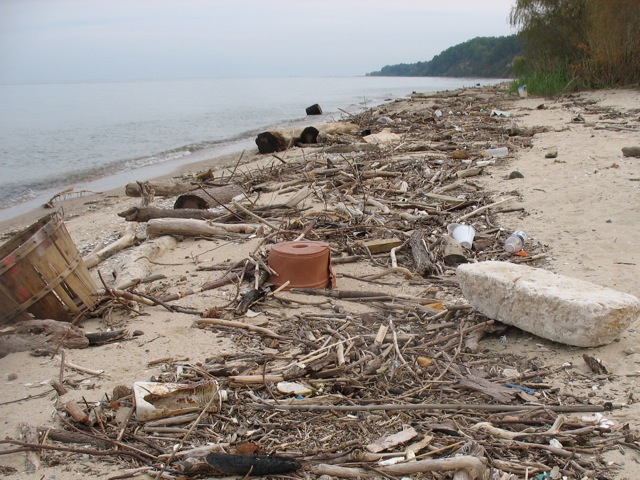
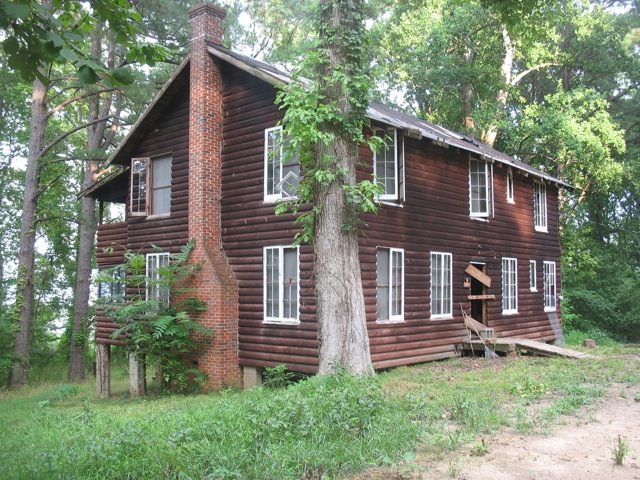
With the land and house cleaned, we began thinking about the next step. The roof leaked in so many places, it was comical to be inside during a rainstorm. Electric lines dangled dangerously from the ceiling. We wondered how the house had survived for so long and how my uncle managed to avoid a house fire.
Friends came out to look and were skeptical when we described how we planned to repair the house; with all that family history, I had a compelling need to save it if I could–despite the scope of what was needed. We spent months reviewing options and going over building plans.
Shortly after we began the work, a hurricane came up the Bay and dropped a tree on the back porch, pushing the whole house out of square. It was the final straw. Clearly, some greater power was overriding my desire to save this house. After the damage, we kept coming back, trying to find a way to still make it work, but it was obvious: the house was lost.
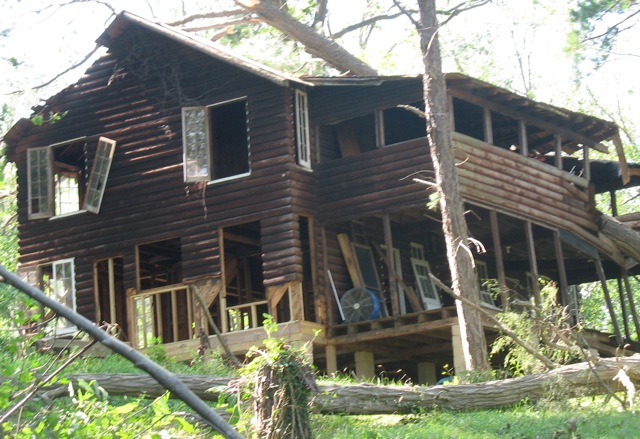
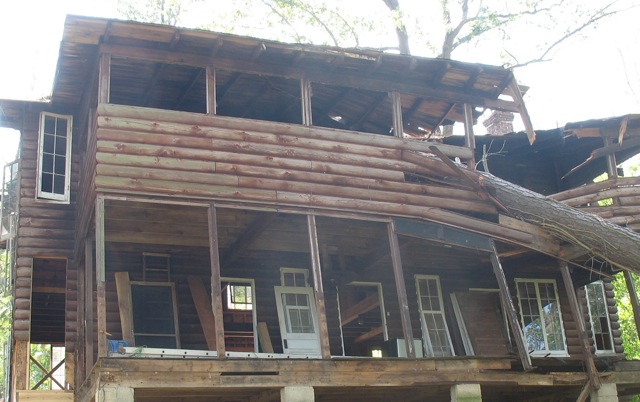
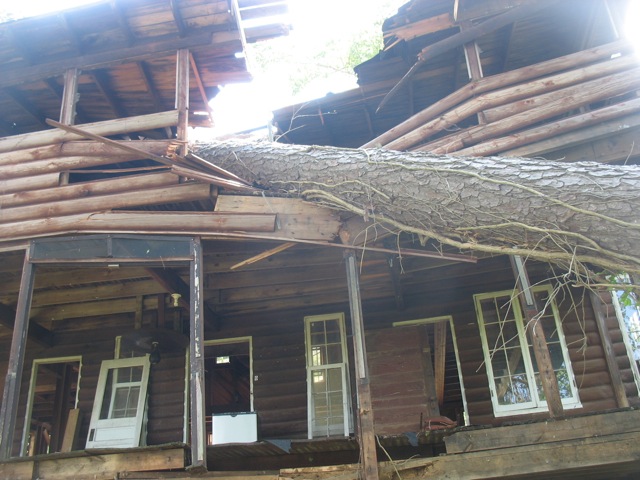
When the trucks finally came to haul it away, we saw that many of the wooden beams that had appeared strong and sturdy, had splintered apart in the demolition, revealing rot, decay and insect damage in places where we could never have seen it. The footers, built decades before there were building codes, sat just a few inches below the ground; nothing close to the depth required today. We looked on as they were pulled up and hauled away, wondering how the house had stood upright all those years.
The house just barely outlived my uncle, who was born in 1938–the same year the house was built. It did its job and now will become a memory, aided by photographs spanning seventy years.
The land my Grandparents first saw remains much the way it looked when they drove down that first time. We’ve placed the woodlands in a forest conservation program and the trails and paths have been reopened; the fruit trees my uncle planted have been pruned, and the trash has been picked up along the shoreline–at least until the next tide, when more debris will most assuredly wash up onto the beach for us to clean.
There is something poetic about the ebb and flow of the bay tides. It reminds you of your place in the world and reminds you that no matter how you try, there are some things you can never control.
